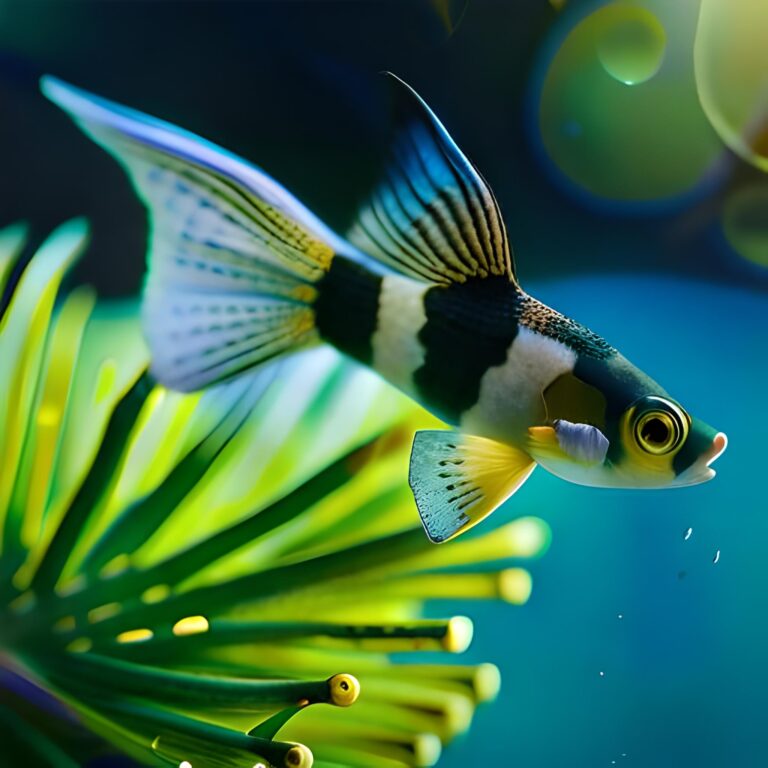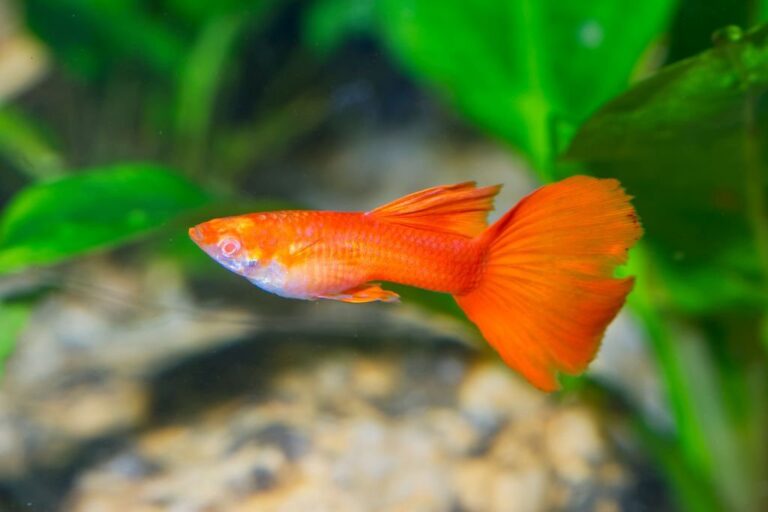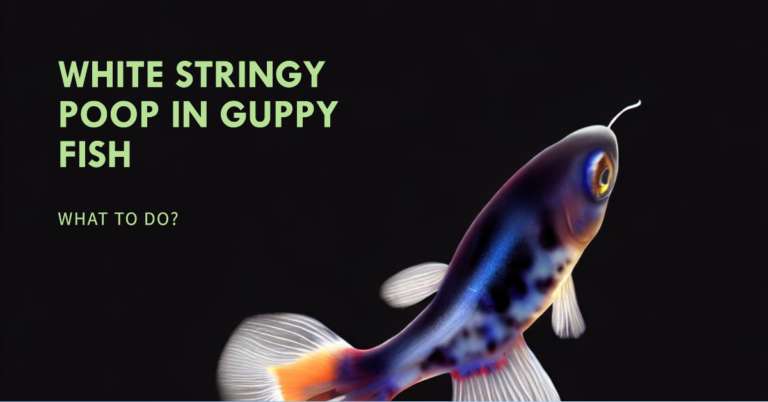Can Guppies Live in Cold Water? Questions ANSWERED!
Aquarium enthusiasts who consider keeping guppies in their tanks or outdoor ponds often ask, “Can guppies live in cold water?” Guppies, also known as Poecilia reticulata, have vibrant colors and are easy to care for. However, they naturally inhabit warm tropical waters, so it is crucial to determine if they can adapt to colder environments.
Guppies possess some degree of resilience and can survive in slightly colder water temperatures. Nonetheless, it is vital to provide them with appropriate conditions and take necessary precautions to ensure their well-being.

Keeping Guppies in an Open Pond
When considering the possibility of keeping guppies in a cold-water environment, one option that may come to mind is an open pond. While guppies are native to warm tropical regions, there have been instances where they have been observed surviving in outdoor ponds with cooler water temperatures. Let’s explore this further:
Hardiness
Guppies are renowned for their hardiness and adaptability to different environments. Some strains of guppies have developed better cold tolerance due to selective breeding. These cold-tolerant strains have a higher chance of surviving in cooler water conditions.
Temperature Fluctuation
Guppies can endure temporary drops in temperature, especially if the fluctuations are gradual. They possess a certain level of resilience that allows them to adapt to varying conditions. However, it’s important to note that prolonged exposure to cold water can be detrimental to their health and overall well-being.
If you are considering keeping guppies in an open pond with cold water, there are a few crucial factors to consider:
Climate
The climate in your region plays a significant role in determining the suitability of an open pond for guppies. If you live in an area with consistently cold temperatures, it may not be the best choice for guppies. However, if you reside in a region with mild or moderate winters, where water temperatures do not fall drastically, guppies may have a better chance of survival.
Shelter and Protection
Providing adequate shelter and protection is essential for guppies in an open pond. Incorporating plants, rocks, or other structures into the pond can create hiding spots where guppies can seek refuge from colder temperatures or potential predators. These shelters also offer a sense of security for the fish.
Monitoring Water Temperature
Regularly monitoring the water temperature in the pond is crucial. Use a reliable thermometer to keep track of temperature fluctuations. If you notice a significant drop in temperature or if it consistently falls below the recommended range for guppies, it’s important to take measures to warm up the water or consider alternative options for housing your guppies.
Natural Food Sources
In an open pond, guppies can benefit from the availability of natural food sources such as algae, insects, and other small organisms. These natural food sources can supplement their diet and promote their overall health. However, it’s important to ensure that the pond has a balanced ecosystem and sufficient food sources for the guppies to thrive.
In certain circumstances, you can keep guppies in an open pond with colder water temperatures. However, experts generally recommend providing them with a controlled and stable environment, such as an indoor aquarium with a heater. Maintaining optimal conditions for their health, reproduction, and overall well-being becomes possible through this approach.
Why You Should Use a Heater with Guppies?
Using a heater in your guppy tank is highly recommended, even if you live in a region with a moderate climate. Here’s why:
Temperature Stability
Guppies are tropical fish and thrive in stable and consistent water temperatures. Using a heater ensures that the water remains within their preferred temperature range, providing them with a stable and comfortable environment.
Health and Immune System
Cold temperatures can weaken the immune system of guppies, making them more susceptible to diseases and infections. Maintaining optimal water temperature with a heater helps to keep your guppies healthy and boosts their immune system.
Reproduction
Guppies are prolific breeders, and maintaining a stable temperature is crucial for successful breeding. A heater ensures that the water temperature remains within the range preferred by guppies for breeding, increasing the chances of successful reproduction.
Overall Well-being
Warm water promotes healthy metabolism, digestion, and vibrant coloration in guppies. It also enhances their natural behavior and encourages their active and playful nature.
Considering these factors, using a heater to maintain appropriate water temperature is highly beneficial for the health and well-being of your guppies.
The Ideal Temperature Range for Guppy Fish
To ensure optimal conditions for guppies, it’s important to maintain the water temperature within their ideal range. The recommended temperature range for guppies is between 75-82°F (24-28°C). Here’s why this range is important:
Metabolic Rate
Guppies are ectothermic, meaning their body temperature is regulated by the surrounding environment. Higher temperatures increase their metabolic rate, leading to better digestion and nutrient absorption.
Reproduction
Guppies are known for their prolific breeding, and maintaining an appropriate temperature range is essential for successful reproduction. Warmer water stimulates their reproductive behavior and supports the growth and survival of fry.
Coloration and Behavior
Warmer temperatures enhance the vibrant coloration of guppies and promote their active and playful behavior. It allows them to display their full potential and adds visual appeal to the aquarium.
By maintaining the water temperature within the recommended range, you can ensure the overall health, vitality, and natural behavior of your guppies.
Fish Species that Can Survive in Cold Water
If you are specifically interested in keeping fish in colder water conditions, there are several cold-water fish species that are better suited for such environments. Some popular options include:
White Cloud Mountain Minnows
These small and peaceful fish can tolerate temperatures as low as 64°F (18°C) and are well-suited for cold-water setups.
Goldfish
Goldfish are hardy and adaptable cold-water fish that can withstand a wide range of temperatures. They are a popular choice for outdoor ponds and indoor aquariums.
Rosy Red Minnows
These minnows can tolerate temperatures as low as 50°F (10°C) and are often kept in outdoor ponds.
While guppies may not be the ideal choice for cold water environments, there are several other fish species that can thrive in colder temperatures. It’s important to research and choose fish that are specifically adapted to the temperature conditions you can provide.
Frequently Asked Questions
# 1 – Can guppies survive in cold tap water?
Guppies may survive in slightly cooler tap water for a short duration, but prolonged exposure to cold water can be harmful to their health. It is advisable to use a heater to maintain a stable and suitable temperature for guppies.
#2 – What happens if guppies are kept in water that is too cold?
Guppies kept in water that is too cold may experience sluggishness, reduced appetite, weakened immune system, and increased susceptibility to diseases. Prolonged exposure to cold water can be detrimental to their overall health and well-being.
#3 – Can guppies survive in an unheated aquarium?
Guppies may survive in an unheated aquarium if the ambient temperature is within their preferred range. However, using a heater is recommended to maintain stable and optimal temperature conditions for their overall health and well-being.
Conclusion
While guppies are adaptable and can tolerate slight temperature variations, they are primarily tropical fish that thrive in warmer water conditions. It is generally recommended to provide guppies with a stable temperature between 75-82°F (24-28°C) for their optimal health, well-being, and vibrant coloration. While they may survive in cooler temperatures for a short duration, it is crucial to use a heater to maintain suitable conditions and ensure their long-term health and vitality. Remember, providing the appropriate temperature range is essential for the overall success and enjoyment of keeping guppies in your aquarium.


